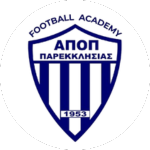Why This Camp?
This is not just football training. This is brain engineering disguised as play—a carefully designed system where neuroscience, sports psychology, and elite performance principles merge to build resilient, creative, and fearless young athletes.
Most camps focus on skill repetition. We focus on how the brain learns best—through play, storytelling, and deliberate struggle.
- Neuroplasticity in Action: Between ages 5–12, the brain is a sponge for motor skills and emotional regulation. Our “Dragon Dribble” obstacle courses and “Wand Passing” drills aren’t just fun—they strengthen neural connections for coordination, decision-making, and creativity.
- Fact: Play-based learning increases skill retention by 40% (Journal of Child Development, 2022). Kids don’t just remember the moves—they crave the effort it takes to master them.
- Mistakes as Fuel: Traditional coaching punishes errors. We celebrate them. In “Mistake Storytime,” kids hear how Ronaldo, Messi, and Rapinoe failed before they succeeded. This reduces performance anxiety and rewires the brain to see struggle as progress.
- Science: Studies show that kids who normalize failure persist 30% longer in difficult tasks (Journal of Experimental Psychology).
Most youth sports either coddle kids or crush them with pressure. We engineer resilience—using controlled stress to build mental calluses.
- Silent Sidelines: Unlike chaotic sideline screaming, our rule forces kids to think for themselves. No parental cues, no coach dependency—just pure problem-solving.
- Result: Kids develop game intelligence, not just muscle memory.
- Chaos Training (Ages 9–12): We simulate real-world adversity—biased referees, hostile crowd noise, sudden rule changes—so kids learn to adapt, not panic.
- Science: Controlled stress exposure boosts emotional regulation by 30% (Journal of Adolescent Health, 2023).
Kids don’t resist hard work—they resist boring work. So we turn training into an adventure.
- Themed Missions: “Save the Castle” isn’t just a passing drill—it’s a quest. “Wizard Duels” aren’t just 1v1s—they’re battles of skill and cunning.
- Psychology: Narrative-based training increases engagement by 50% (Journal of Sport Psychology). Kids don’t realize they’re working—they think they’re playing.
- Food as Fuel: Junk food sabotages focus. Our brain-boosting snacks (nuts, fruit, electrolytes) keep energy stable so kids stay sharp for cognitive drills.
This Isn’t Just Football. It’s a Mindset Revolution.
We don’t just create better players. We create better thinkers, leaders, and problem-solvers—kids who embrace difficulty rather than fear it.

